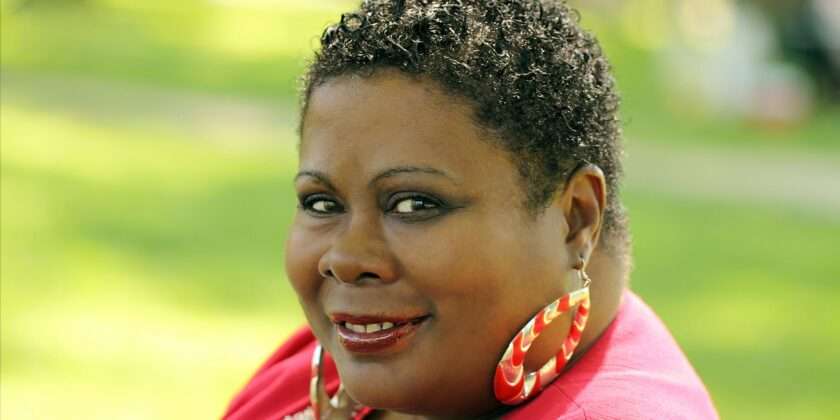Stevie Wonder said, “Mama was my greatest teacher, a teacher of compassion, love, and fearlessness. If love is sweet as a flower, then my mother is that sweet flower of love.”
Krissah Thompson, a journalist at The Washington Post, told theGrio1 talks about the leaps and bounds in terms of college graduation rates, and the numbers who are professionals, and in some cases in management and leadership made by Black women.
Thompson wrote a groundbreaking article about the status of black women’s lives today based on the first survey in decades to gather data about our perceptions, needs, and sense of social attainment. The survey found that black women today are resilient, have high self-esteem, and are extremely hopeful. This hopefulness is rooted in the awareness of everything we have overcome to arrive at the now.
Black women are clearly the bedrock of the black community. We must find ways to maintain and improve the health of our Mamas. Jay Harold believes that he has found a program that helps improve the heart health of women.
Heart Disease is the leading killer of Women
Accounting for 1 in every 4 deaths, heart disease is the leading cause of death for women in the United States.2 The WISEWOMAN (Well-Integrated Screening and Evaluation for WOMen Across the Nation) program was created to help women understand and reduce their risk of heart disease and stroke by providing services to promote lasting heart-healthy lifestyles. Working with low-income, uninsured and underinsured women aged 40 to 64 years, the program provides heart disease and stroke risk factor screenings and services that promote healthy behaviors. The WISEWOMAN program currently consists of 21 programs in 19 states and 2 tribal organizations and is administered through CDC’s Division for Heart Disease and Stroke Prevention3 (DHDSP).
The purpose of the WISEWOMAN program is to
- Assure that heart disease and stroke risk factor screenings are provided to women aged 40 to 64 years who participate in the NBCCEDP.
- Work with community-based organizations to provide evidence-based prevention and lifestyle services.
- Facilitate collaboration between public health agencies, health care providers, and communities to integrate innovative and evidence-based approaches to enhance blood pressure management and control.
- Gather and analyze data to assess WISEWOMAN program outcomes.
WISEWOMAN Improves Heart Disease and Stroke Prevention
The WISEWOMAN program aims to improve the delivery of heart disease and stroke prevention services by focusing on cardiovascular disease (CVD) risk factors, specifically improving blood pressure control. WISEWOMAN helps integrate innovative and ev
Examples of this include:
- Using a team-based care approach, which includes the patient and the patient’s primary care provider, nurses, pharmacists, and community health workers, to provide care for patients with high blood pressure and other risk factors.
- Supporting clinicians by providing tools and resources to help their patients regularly measure their blood pressure at home.
- Providing tools to pharmacists to work with patients to help them take their blood pressure medications as directed.
- Providing skill-based training to encourage participants to improve their diet and increase physical activity.
- Referring smokers to quit lines or other tobacco cessation resources.
- Supporting community-based farmers’ markets and other programs to increase access to healthy, fresh food options.
- Providing access to community-based physical activity options such as YMCA memberships and passes to local park and recreation services.
- Increasing the number of evidence-based lifestyle programs offered in communities such as the National Diabetes Prevention Programs and Take Off Pounds Sensibly Club, Inc. (TOPS) groups.
Clinical Screenings and Support
- Heart disease and stroke risk factor screenings (blood pressure, cholesterol, diabetes, body mass index also known as BMI, and smoking)
- Health risk assessment
- Medical history
- Risk reduction counseling

- Follow-up for patients with heart disease and stroke risk factors (after health risk assessment and risk reduction counseling, if needed)
Healthy Behavior Support Options
- Health coaching
- Evidence-based lifestyle programs that address nutrition and physical activity
- Community-based resources that address individual risk factors and support lifestyle change
Clinical Screenings and Support
- Heart disease and stroke risk factor screenings (blood pressure, cholesterol, diabetes, body mass index also known as BMI, and smoking)
- Health risk assessment
- Medical history
- Risk reduction counseling
- Follow-up for patients with heart disease and stroke risk factors (after health risk assessment and risk reduction counseling, if needed)
Healthy Behavior Support Options
- Health coaching
- Evidence-based lifestyle programs that address nutrition and physical activity
- Community-based resources that address individual risk factors and support lifestyle change
Black Women clearly fall within the target group of women the Wisewoman program. Black Women had median annual earnings of $33,5334 in 2014 according to the U.S. Census.
Enjoyed this post? Share it and read more here. Jay Harold has put together a Resource page that you may find useful when trying to improve your health and wealth. Please take this advice of Muhammad Ali and give back to others. “Service to others is the rent you pay for your room here on earth.” ~ Muhammad Ali.
Bibliography
- http://thegrio.com/2013/03/01/womens-history-month-on-the-importance-of-black-womens-history/
- https://www.cdc.gov/wisewoman/about.htm
- https://www.cdc.gov/dhdsp/index.htm
- https://www.dol.gov/wb/media/Black_Women_in_the_Labor_Force.pdf




